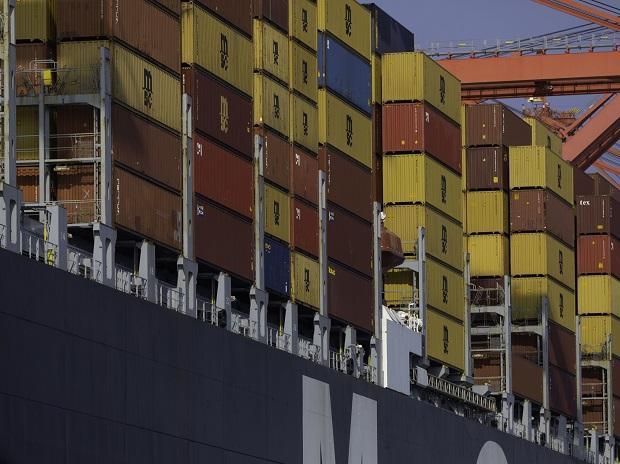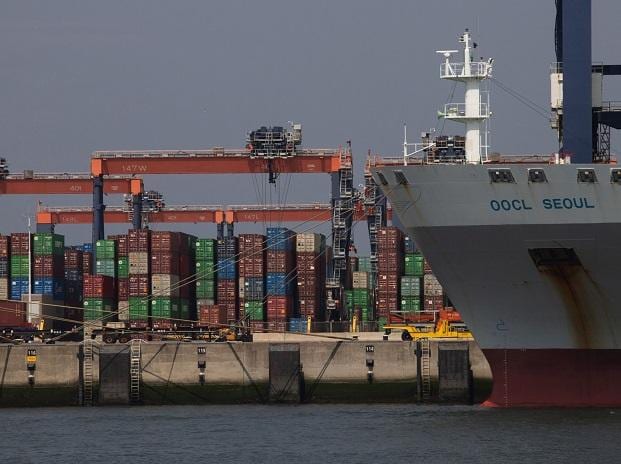WHAT IS CUSTOMS DUTY

Customs Duty
Customs duty refers to the tax imposed on goods when they are transported across international borders. In simple terms, it is the tax that is levied on import and export of goods. The government uses this duty to raise its revenues, safeguard domestic industries, and regulate movement of goods.
The rate of Customs duty varies depending on where the goods were made and what they were made of.
Custom duty in India is defined under the Customs Act, 1962, and all matters related to it fall under the Central Board of Excise & Customs (CBEC).
The Budget estimate of the government's customs revenue for the year 2020-21 was Rs 1,38,000 crore. The revised estimates of customs for the 2019-20 Budget came at Rs 1,25,000 crore, while the actuals for the 2018-19 Budget stood at Rs 1,17,812.85 crore.
The Budget estimate of the government's customs revenue for the year 2020-21 was Rs 1,38,000 crore. The revised estimates of customs for the 2019-20 Budget came at Rs 1,25,000 crore, while the actuals for the 2018-19 Budget stood at Rs 1,17,812.85 crore.
Types of custom duty
- Basic Customs Duty (BCD)
- Countervailing Duty (CVD)
- Additional Customs Duty or Special CVD
- Protective Duty,
- Anti-dumping Duty
Changes in Customs duty
In Budget 2019, the government announced a slew of changes to Customs duty in order to meet multiple objectives, including promotion of clean energy, curbing non-essential imports, boosting domestic manufacturing and raising revenue. Customs duty was cut on several inputs to incentivise domestic production and increased on finished products to garner additional revenues.
The government had said it was expecting a 19 per cent growth in Customs collection to Rs 1.5 trillion for 2019-20.
RELATED BUDGET TERMS
CUSTOMS DUTY NEWS
-
 Budget 2023 wishlist: ICEA calls for rationalisation of duties on parts
Budget 2023 wishlist: ICEA calls for rationalisation of duties on parts
India Cellular and Electronics Association (ICEA) has batted for rationalisation of duties on parts and components of mobile ...| January 26, 2023, Thursday -
 Finance ministry looks to curb smuggling of top-end mobile phones
Finance ministry looks to curb smuggling of top-end mobile phones
FinMin considers proposal to reduce basic Customs duty on phones with a cost, insurance and freight value of over Rs 35,000| January 23, 2023, Monday -
 US agriculture associations fear market loss to India's FTA partners
US agriculture associations fear market loss to India's FTA partners
In June 2019, India hiked tariffs on 28 items exported by the US, including almonds, apples, walnuts| January 23, 2023, Monday -
 Chatroom: 'Export duty is not part of the price paid or payable for goods'
Chatroom: 'Export duty is not part of the price paid or payable for goods'
you must show the export duty amount separately in the invoice and collect the aggregate amount from the buyer (whether in one or ...| January 23, 2023, Monday -
 India may exempt 30 GW of solar plants from equipment duty: Report
India may exempt 30 GW of solar plants from equipment duty: Report
In March 2021, the government announced 25% basic customs duties on solar photovoltaic cells and 40% on solar photovoltaic ...| January 11, 2023, Wednesday -
 'DGFT should clarify duty payment for destruction of imported goods'
'DGFT should clarify duty payment for destruction of imported goods'
Practically, it is difficult to escape payment of customs duty and interest even when the goods are destroyed or re-exported| January 09, 2023, Monday -
 'Proving identity of re-imported goods essential for claiming exemption'
'Proving identity of re-imported goods essential for claiming exemption'
Funds held in the foreign currency accounts of SEZ units cannot be loaned or made available to any person or entity resident in ...| December 12, 2022, Monday -
 Top Headlines: Tax-free slab to Rs 5 lakh, basic Customs duty cut, and more
Top Headlines: Tax-free slab to Rs 5 lakh, basic Customs duty cut, and more
Business Standard brings you the top headlines at this hour| December 12, 2022, Monday -
 Budget 2023-24: Govt mulls basic Customs duty cut to align with FTA
Budget 2023-24: Govt mulls basic Customs duty cut to align with FTA
Finance Minister Nirmala Sitharaman will be presenting the Union Budget on February 1, 2023, in Parliament, outlining her tax and ...| December 11, 2022, Sunday -
Centre extends RoDTEP to more sectors, but refund woes remain

Exports under advance authorisation scheme and by export-oriented units, units in special economic zones and manufacturing goods ...| December 11, 2022, Sunday




